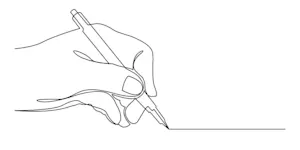What Makes This Word Tick
“Brusque” is a word with a bit of a sharp edge. It describes communication that is blunt to the point of being almost rudely abrupt. We've all encountered that choppy conversationalist who seems to have trimmed all the extra fluff from their sentences—while sometimes this can be refreshing, it can also feel a bit like a verbal slap.
If Brusque Were a Person…
If "brusque" were striding through your neighborhood, you’d know them by their quick pace and direct, no-nonsense approach to interaction. They're the type to tell you exactly what they think of your new lawn ornament with no sugar-coating. They mean well—they’re just not ones for pleasantries.
How This Word Has Changed Over Time
Originally from the French word "brusque," which directly borrowed from the Italian "brusco" meaning "tart" or "sharp," the word has maintained its meaning quite steadily over the centuries. While some words drift in usage, “brusque” has remained firm in its slightly harsh delivery.
Old Sayings and Proverbs That Use Brusque
While "brusque" itself doesn’t star in any well-trodden proverbs, the sentiment isn't entirely missing from the wisdom of yore. Old chestnuts like "bluntness is an iced shot of truth" capture the essence, even if they lack this specific term.
Surprising Facts About Brusque
Did you know that a place bearing the name of this very word exists? The city of Brusque, in Brazil, is known for its textile industry—which couldn't be more different from the prickly nature of its namesake word.
Out and About With This Word
Listen closely next time you're at a customer service desk or a busy office. The word "brusque" flutters in quietly like a sparrow when someone weary of diplomat-speak decides honesty is the best—and quickest—policy.
Pop Culture Moments Where Brusque Was Used
Many a character from TV shows or movies, like Basil Fawlty from "Fawlty Towers," comes equipped with a brusque demeanor. Their sharp-tongued wit cloaks affection and complexity, a staple in the art of crafting entertaining storytelling.
The Word in Literature
In the world of literature, brusque exchanges are the bread and butter of dialogue for bringing tension or comedy into a scene. These curt, pithy interactions fill the pages of classic detective novels, where time is a luxury neither the characters nor the author can afford.
Moments in History with Brusque
Think of Winston Churchill's speeches during World War II. Though not brusque in the negative sense, they were certainly direct and devoid of the fluff that would have crumbled under the weight of the moment’s gravity.
This Word Around the World
Across the globe, cultures interpret a brusque manner in vibrant ways. What could be seen as rude in Japan, where courteous and nuanced language is treasured, might be simply viewed as efficiency in Germany, known for its straightforwardness.
Where Does It Come From?
The word "brusque" slipped into English in the mid-1600s, bearing the French influence even as it took its sharpness from the earlier Italian “brusco,” describing anything from a sour temper to a biting taste.
How People Misuse This Word
Sometimes people mistake "brusque" for meaning simply brief, but it holds more nuance. It’s not just about economy of words—there's an edge to brusque that borders on curtness or impoliteness.
Words It’s Often Confused With
Blunt: Often confused due to its straightforwardness, but blunt can be intended to spare feelings when used with care.
Curt: Even shorter than brusque, though with an added layer of rudeness.
Abrasive: Tends to suggest roughness in demeanor, which is similar but lacks the potential expediency of “brusque.”
Additional Synonyms and Antonyms
For synonyms, consider "brisk," or "curt." If your aim is to describe the opposite, words like "polite," "gentle," or "diplomatic" do the trick.
Want to Try It Out in a Sentence?
"Her brusque reply surprised him, bypassing the small talk she usually indulged in at parties."
















